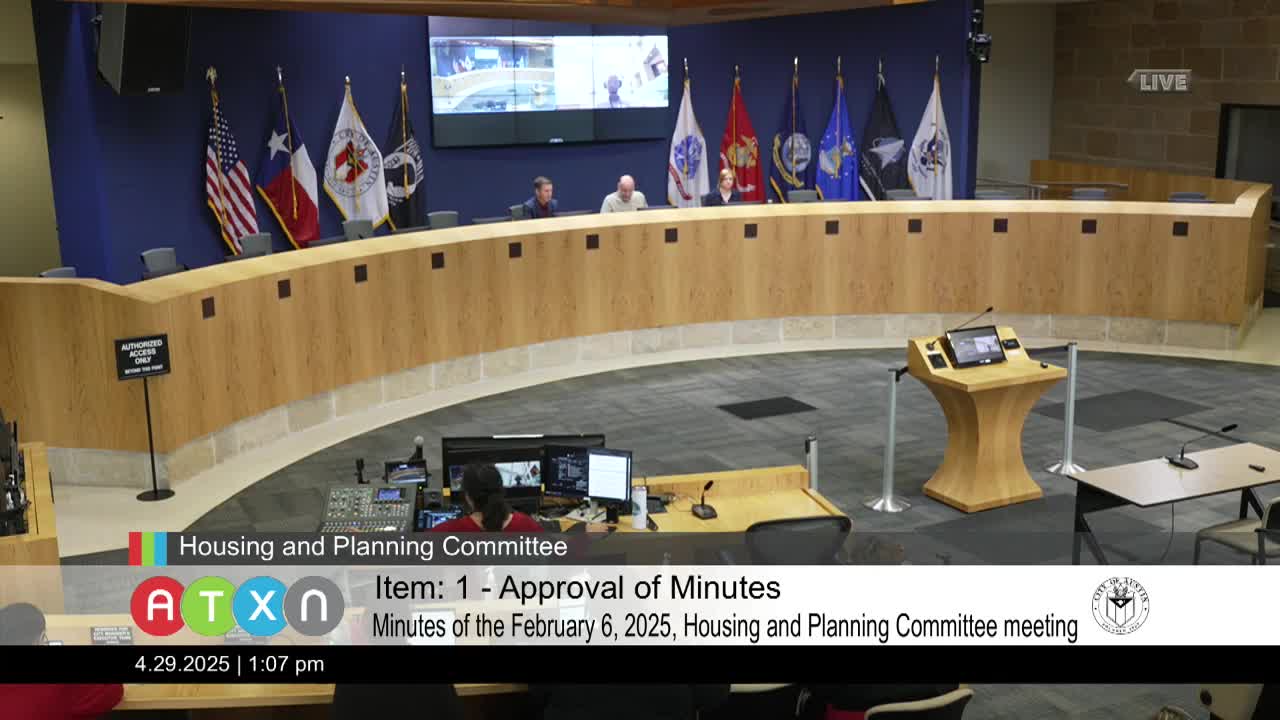Article not found
This article is no longer available. But don't worry—we've gathered other articles that discuss the same topic.
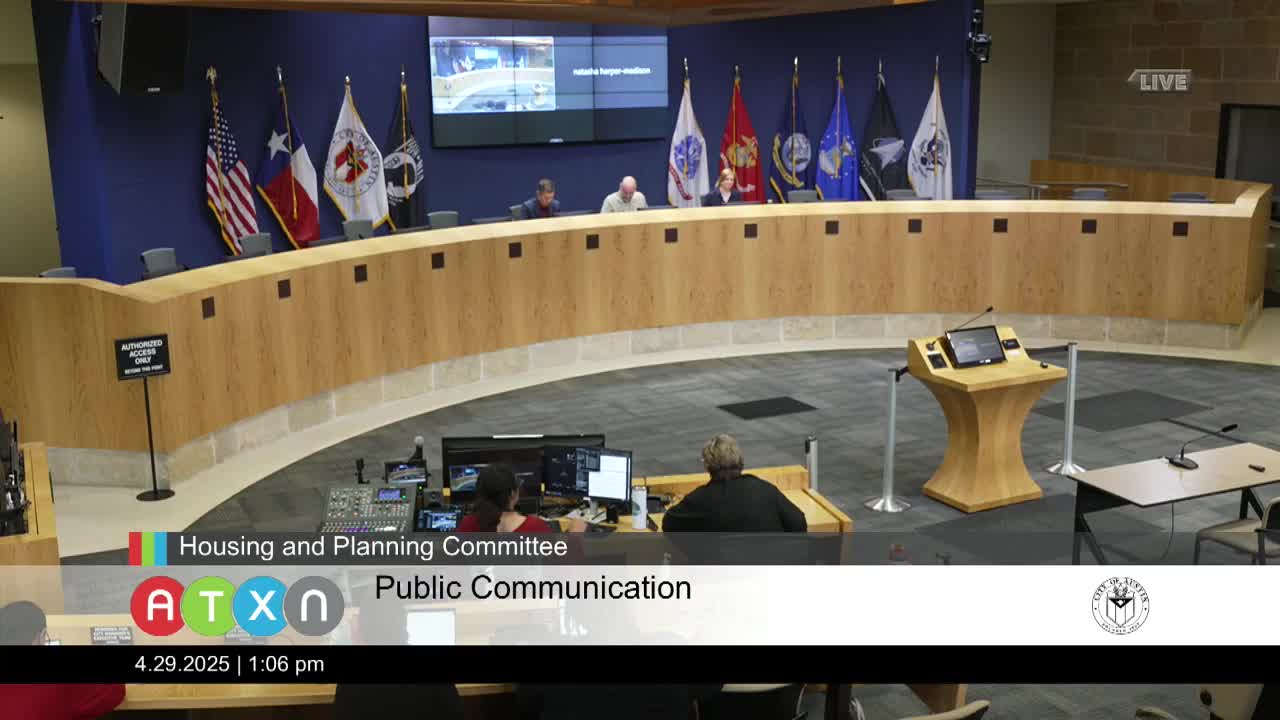
Committee approves minutes from Feb. 6 meeting
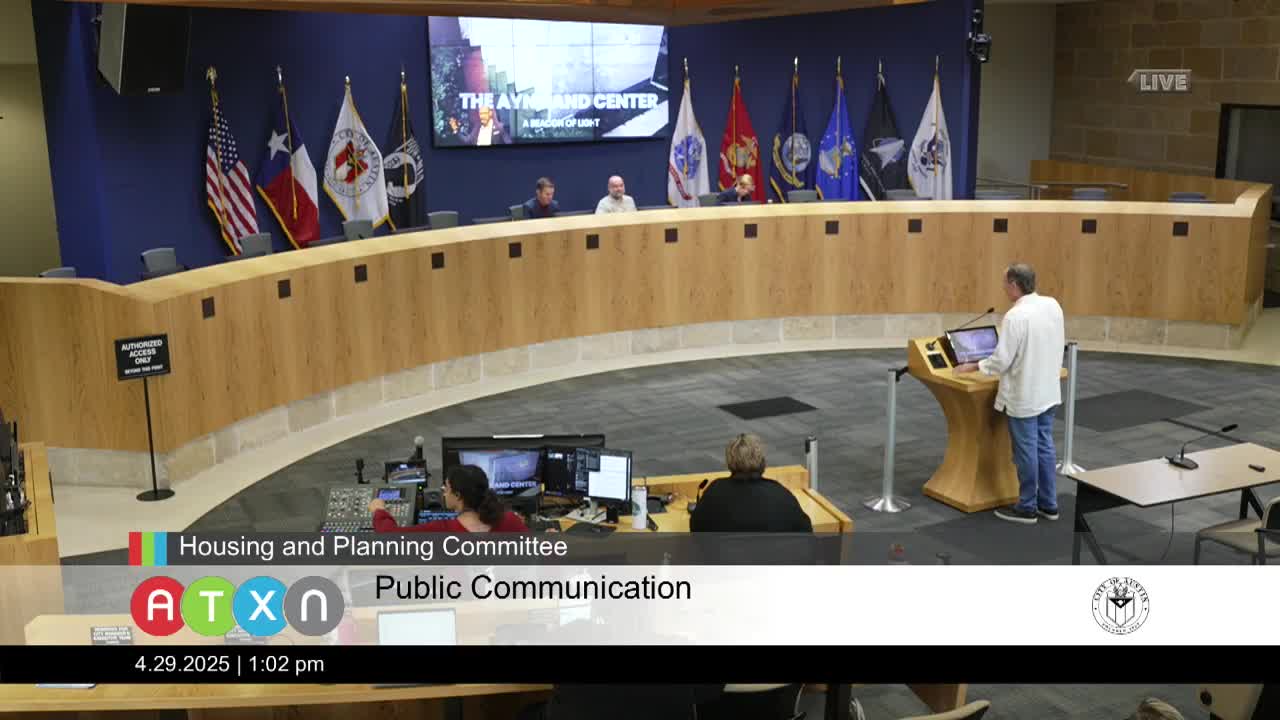
Public commenters raise concerns about new museum at 1900 San Gabriel and conditions at Lady Bird/Fiesta Gardens
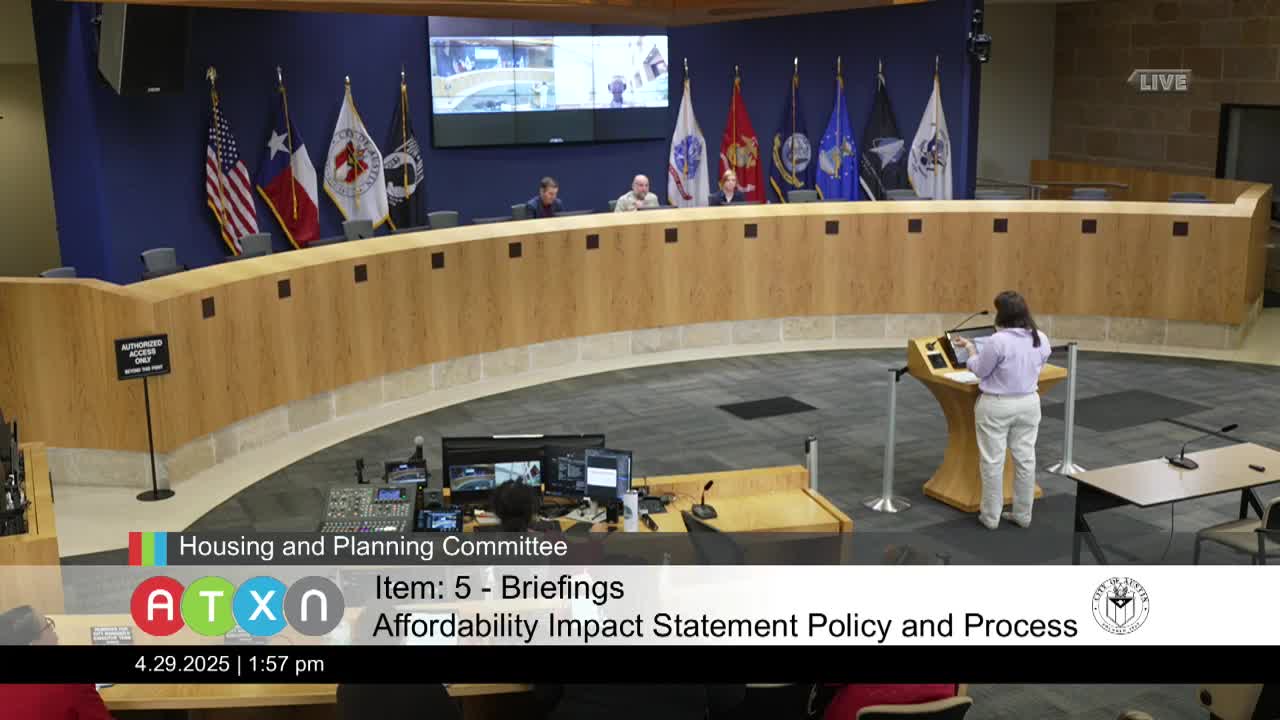
Chair urges holistic planning for 78702 after staff memo on public assets
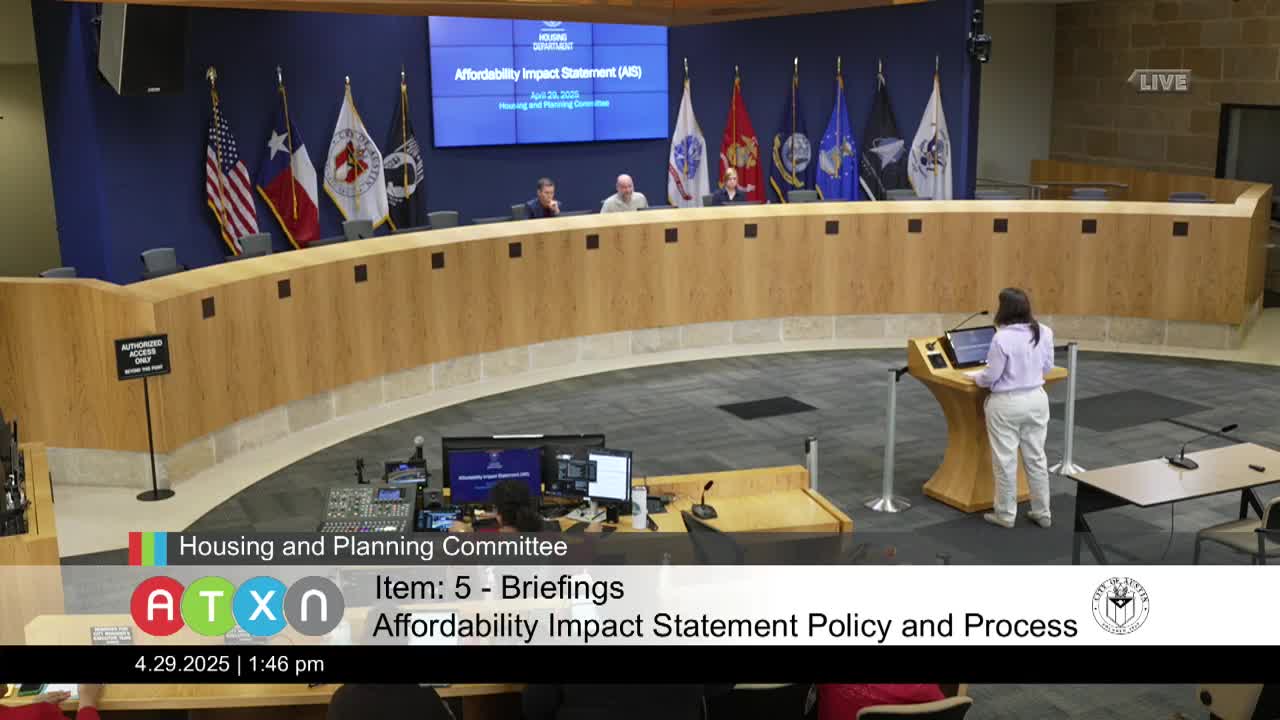
Housing staff and advocates urge reforms to Austin’s affordability-impact statement process
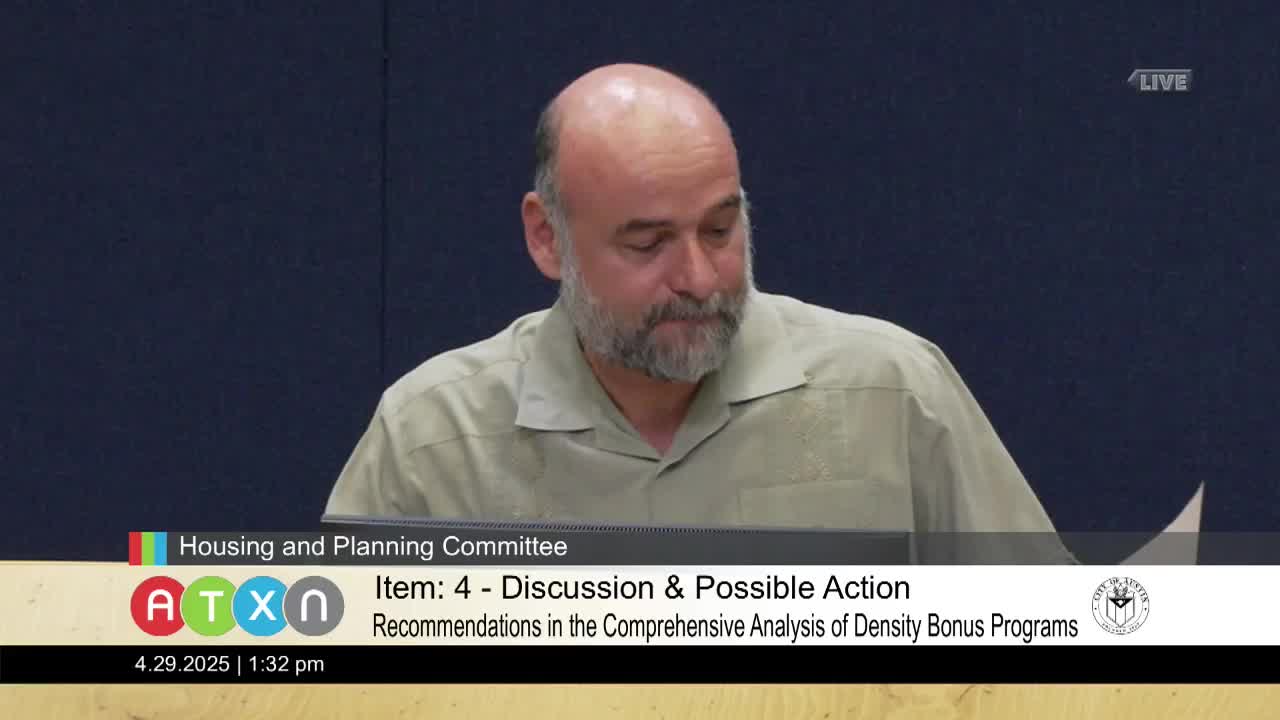
Staff outline steps to implement recommendations from comprehensive density-bonus analysis
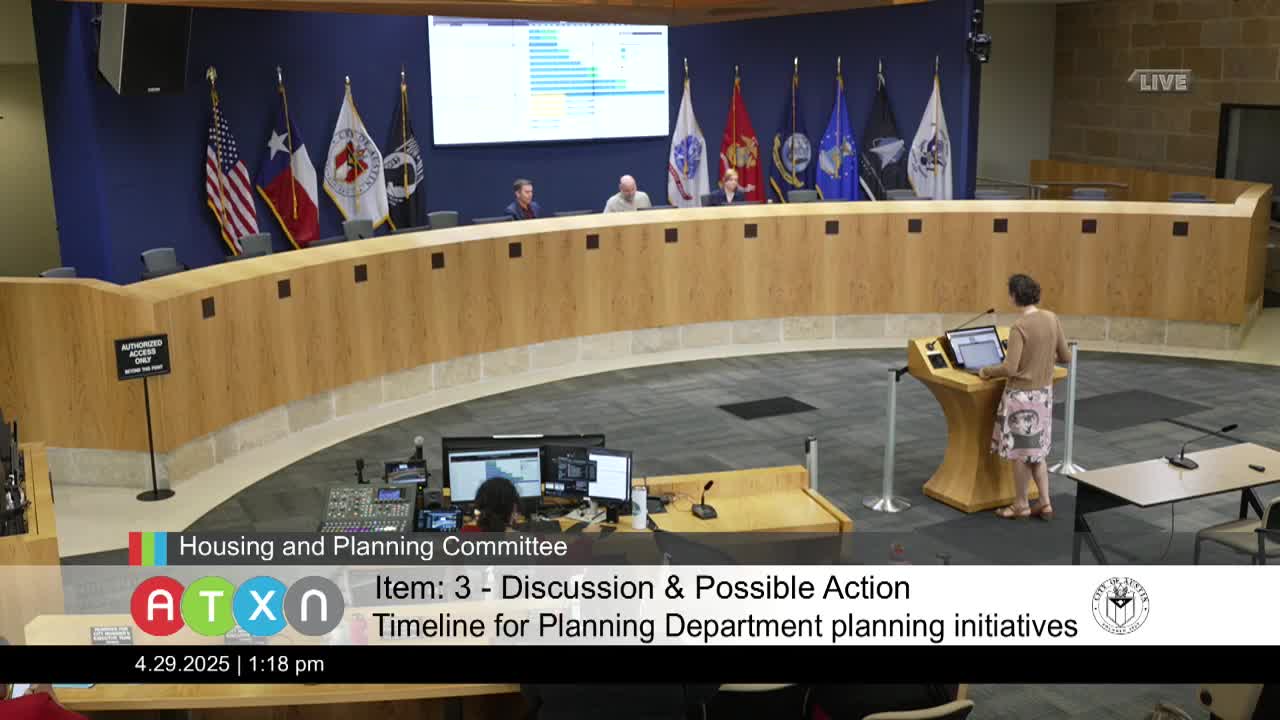
Planning Department outlines major planning initiatives and target dates
